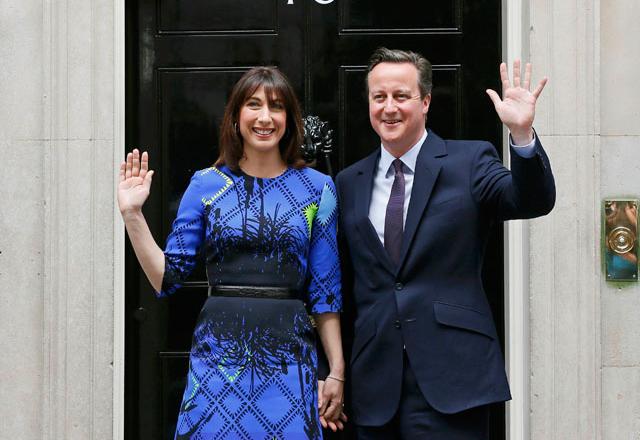You are here
UK's Labour seeks energy price cuts
By Reuters - Jan 11,2015 - Last updated at Jan 11,2015
LONDON — Britain's opposition Labour Party said it would try to introduce a law to give the energy regulator the power to force firms to cut prices in response to falls in wholesale costs, a move it hopes will boost it four months before a national election.
The plan, announced on Sunday by Ed Miliband, the party's leader, will see Labour bring forward a vote on a motion to fast-track such legislation before parliament on Wednesday.
Miliband called on the governing Conservatives and Liberal Democrats to support the new law. Prime Minister David Cameron has balked at similar ideas before, portraying them as meddling in the free market.
"We've seen wholesale costs go down 20 per cent in gas prices over the last year and no reduction in bills," Miliband said.
"We'll give the regulator the power to cut prices to bring immediate relief," Miliband told BBC TV's Andrew Marr Show, referring to Ofgem.
Labour's move is meant to appeal to voters, many of whom have felt their living standards squeezed by inflation outstripping wages until recently, before what is shaping up to be one of the closest elections in decades.
A sharp drop in oil prices has led to a fall in petrol prices in Britain and politicians are seeking to court voters by competing to sound tougher on firms perceived to be not cutting their prices fast enough.
A 2013 proposal by Miliband to freeze gas and electricity prices for 20 months gave his party a temporary lift in opinion polls. It was criticised by the country's big six energy suppliers and business groups.
Energy UK, a group representing the industry, said on Sunday firms were already passing on savings to consumers and that pricing was a commercial matter for individual companies.
"No new powers are needed," Lawrence Slade, chief executive of Energy UK, said in a statement.
"When people shop around they can easily find deals that are over a hundred pounds cheaper than this time last year and in line with falls in the wholesale energy price part of energy bills," he added.
Conservative finance minister, George Osborne, last week said it was vital that the lower oil price be passed onto families "at petrol pumps, through utility bills and air fares".
Danny Alexander, the Liberal Democrats' most senior figure in the same ministry, has made similar comments.
While Cameron's Conservatives want to fight the election on their record of presiding over an economic recovery, Labour want to use the energy question, among others, to highlight what they say has been a cost of living crisis, a charge they hope will blunt the Conservatives' economic boasts.
Miliband on Sunday called for the introduction of a new benchmark, an "independent Living Standards Index", to measure people's well being.
An opinion poll released by YouGov on Sunday had Labour and the Conservatives tied on 32 per cent, the Liberal Democrats on 7 per cent, the United Kingdom Independence Party on 18 per cent, and the Greens on 6 per cent.
Separately, British Prime Minister David Cameron's Conservatives on Sunday pledged to cut inheritance tax so it became a levy only for "the rich" as they sought to woo pensioners and property-owners before a close national election in four months.
George Osborne, the Conservative finance minister, gave his strongest signal yet he would reduce the tax, also known as death duties, saying he would set out plans before the May 7 election to make the system fairer.
"I have taken steps to help with inheritance, making sure that people can pass on their pension to their children," Osborne told The Sunday Times newspaper in an interview.
"David Cameron has made it clear, as have I, that we believe inheritance tax is a tax that should be paid by the rich and we will set out our further approach closer to the election," he said.
Inheritance tax has become increasingly unpopular with many Britons as rising property prices, particularly in London, mean a greater proportion of people are liable to pay it.
The Conservatives are keen to portray themselves as tax cutters and the rival opposition Labour Party as big borrowers and spenders, a charge the left-wing party, which is narrowly ahead in most opinion polls, rejects.
Related Articles
British Finance Minister George Osborne spelled out plans for more spending cuts on Monday, betting that voters will accept his tough approach to fixing the economy and give an election victory to his Conservative Party next year.
Britain awoke to a new political landscape on Saturday after a shock election victory for Prime Minister David Cameron that decapitated the opposition and bolstered secessionists in Scotland.
LONDON — British Prime Minister David Cameron took the unusual step on Sunday of publishing his tax records to try to end days of questions












